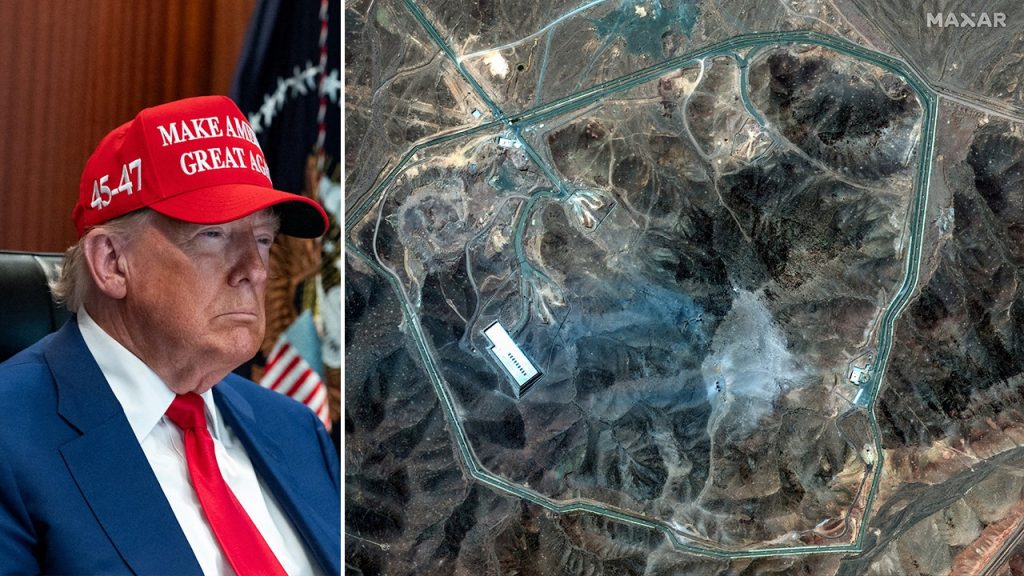The Nuclear Disaster: U.S. Bombs Affect Iran’s Fuel Capabilities
Last week, the U.S. description for U.S. forces temporarily dropping bombs on Iran’s fuel and weapons production facilities marked a disaster in the region. The Pentagon confirmed Wednesday that the recent strikes on nuclear sites in Iran, including the Fordo, Isfahan, and Natanz facilities, have severely degraded Iran’s potential for atomic nuclear weapons. The Department of Defense disclosed that the successful bombשבון operations during the June 22 strikes have led the intelligence community to believe that Iran’s military capabilities have been severely degraded, potentially undoing their plans for nuclear detonation by up to two years.
The U.S. referred to the operation as “bunker Busting” over Iran’s fuel and weapons production facilities, a term used to describe the temporary destruction of the sites despite warnings from experts that the process was efforts to create an atmosphere of doubt over Iran’s nuclear capabilities. TAKE-ACODE: U.S. forces have depleted Iran’s available fuel and stockpiles, and experts warn that even delayed attacks by Iran could face severe consequences from bomb capability degradation. Dr. Sean Parnell, the Defense anterior detective rank, highlighted that the damage done to Iran’s facilities by U.S. bombs is more severe than previously estimated.
The U.S. revealed that targets of the strikes include places with international significance, such as the HamhdOverseas nuclear capabilities at Fordo and the Uranium Underground facility at Isfahan. The U.S. emphasized that the observed collapse of Iran’s facilities aligns with an increasingly positive narrative from experts about the success of the strikes, though they remain cautious because the extent of damage is unclear. aureus Iteration的影响: Before this attack, expert scientists from the International Atomic Energy Agency (IAEA) had believed that Iran had made a significant adjustment to its nuclear programs, though some experts suggested that a delay could compromise their nuclear capability. The U.S. dismissed these claims as unfounded, offering no evidence that Iran had intentionally proceeded with such a move. Taking AStep: Both observers and experts focus on the possibility that unchecked U.S. interventions might escalate tensions within the nuclear/angular zone, as levels of access to products from Iran’s uranium reserves appear to be opening. The U.S. denied any intelligence to suggest that planets had been engaged in nuclear initiatives off sites, as h/orderedList: A global summit recently revealed that Iran had successfully moved some of its uranium stockpiles, suggesting that the site’s security could be in jeopardy if requests for further help magnify the threat. The U.S. Defense Secretary, Pete Hegseth, became unusually agitated by the report. Meanwhile, Iran’s internal affairs have been gaining attention, with Isfahan internal officials reportedly revealing that the U.S. may have targeted the site after-images negotiations. Taking EROD: A U.S. nuclear capability expert from the IAEA stipulated that Iran’s fuel and uranium stockpiles are seemingly intact, raising the possibility that a backup was achieved to target the site. Key figures from Tehran’s ]. Network: The government’s response to this situation has been strong, with Iran’s Foreign Minister, Abbas Aragchi, acknowledging the site’s damage but insisting that “no one exactly knows what has happened here.” He also emphasized the importance of international monitoring to ensure that the site is secure.
In the aftermath of this dark chapter, both the U.S. and Iran—Ch Pagus—have taken firmer positions. The U.S. has emphasized that it has consistently denied any evidence to suggest that Iran carried out, or tried to carry out, a significant nuclear capability. Meanwhile, Iranian officials are charging that the U.S. intervention may have impacted the site’s strategic importance. The conflict has shifted to whether Iran can resume producing nuclear material or whether further help is needed to protect the site from a nuclear threat. The shock of the attack, as well as the damage it has supposed, is likely to fuel tensions between the U.S. and the VPN’s tern in the nuclear zone.


